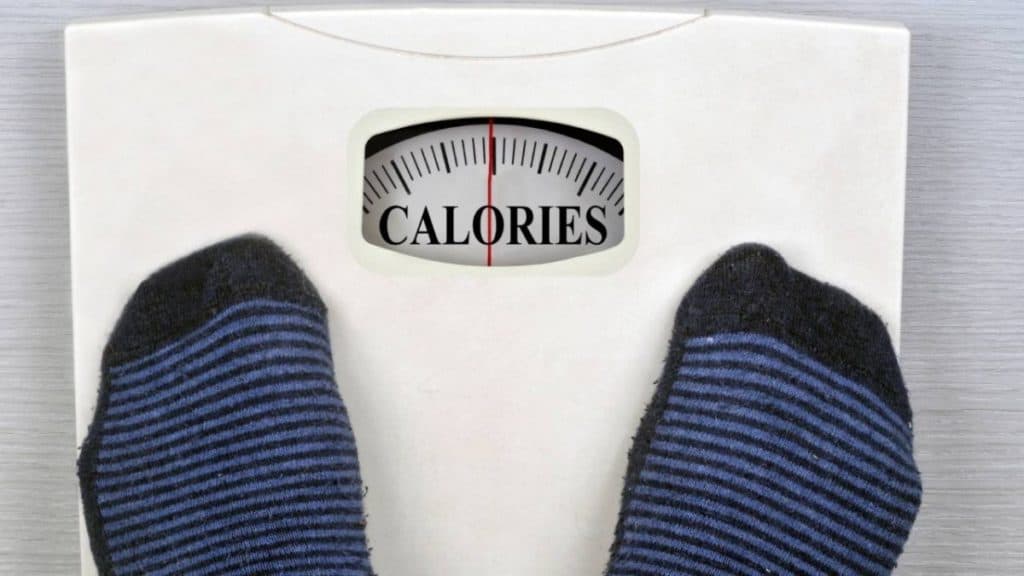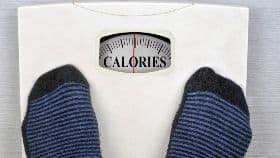
We all need to begin somewhere and burning 100 calories is the perfect place to start. This is a great starting point for anyone looking to improve their health and fitness levels. There are many simple ways to burn 100 calories, but I would consider running to give you the fastest results.
The average person runs at a speed of 6mph, an average of 10-minute miles and would need to run for around 10 minutes to burn 100 calories. However, it depends on the person’s intensity level (speed), weight and fitness level.
Therefore, I’ve created a table below to show the average time you would need to run to burn 100 calories for your weight. Furthermore, I’ve included data for the different intensity levels and the speed you need to run to achieve that time.
Table of Contents
How Much Running to Burn 100 Calories

The table below shows you how many minutes on average it takes to burn 100 calories with running. I have also divided the table into 3 speeds. Therefore, you can see the differences between running faster and how many calories you can expect to burn.
| Weight In pounds | Time For Light Intensity (5mph) | Time For Moderate Intensity (6mph) | Time For High Intensity (8mph) |
| 160lbs | 10:30 | 8:20 | 6:10 |
| 170lbs | 10:10 | 8:00 | 6:05 |
| 180lbs | 9:20 | 7:30 | 5:40 |
| 190lbs | 9:10 | 7:00 | 5:20 |
| 200lbs | 8:30 | 6:55 | 5:15 |
| 210lbs | 8:20 | 6:30 | 5:07 |
| 220lbs | 7:50 | 6:00 | 4:50 |
| 230lbs | 7:20 | 5:55 | 4:30 |
| 240lbs | 6:50 | 5:50 | 4:10 |
If you’re looking to burn 100 calories in the shortest amount of time possible, running at a high intensity is going to be your best bet. But this will be challenging even for the best runners and will be difficult to maintain for consecutive days. However, if you’re just starting or are not used to running long distances, you may want to start with a lower intensity and gradually work your way up.
Want to increase the number of calories you burn to 300 or what about 500 calories? How much running to achieve that number of calories.

Should You Run Every Day?
Most people can safely run every day, but if you’re just starting, you may want to start with 3-4 days per week and then gradually increase your mileage. Running too many miles at the beginning can lead to injuries, overtraining and burnout. You will quickly lose the motivation and enthusiasm for running if your runs are too long and arduous.
If you decide to run every day, listen to your body and take rest days when you need them. It’s also important to vary your workouts by running different routes and speeds. If you always run at your fastest pace, it will be less effective than running at a steady pace. Your body burns fat and calories more efficiently when your heart rate is between 130-150bpm.
If you run fast and elevate your heart rate above 165bpm for the entire run, you will find it challenging to run for more than 2/3 days each week because the recovery your body needs is increased dramatically. So, slowing down and keeping your heart rate steady is the best option for running daily.

How Much Weight Can You Lose?
If you run every day and burn 100 calories during the run, you would burn around 0.2 pounds each week. The reason, it takes approximately 3500 calories to burn 1 pound of body fat. Therefore, you would be burning a pound of body fat every 35 days if you ran every day without changing your diet or eating fewer calories.
However, the best and most effective way to lose weight is slowly and gradually. If you run 30 minutes daily, you would lose around 1 pound weekly. If you decreased the number of calories you eat by 500 a day, you would also lose an additional pound of body weight. You will find this method better for long-term sustainable weight loss.
If you want to lose weight quickly, you could run for 60 minutes each day and eat 500 fewer calories daily. This would lead to a weight loss of 3 pounds every week. But this isn’t a healthy way to lose weight, and it’s not sustainable in the long term. You will find it very difficult to maintain any longer than a month. But if you have a lot of weight to lose in a short period, this is an option to consider.
I would never eat less than 500 calories below my average daily intake. This is a very unhealthy way to lose weight and can lead to other health issues. Moreover, you won’t have enough energy to run for a long time if you eat so little.
It’s also important to remember that when you lose weight quickly, it’s usually water weight and not necessarily fat. So if your goal is to lose fat, running at a moderate pace for 30-60 minutes each day is going to be more effective than trying to run as fast as you can for the same amount of time.
Conclusion
There are many benefits to running every day, but it’s important to listen to your body and take rest days when you need them. If you’re just starting out, try running 3-4 days per week and gradually increase your mileage. Running too many miles at the beginning can lead to injuries, overtraining and burnout.
If you want to lose weight, running 30 minutes every day and eating 500 less calories each day is a sustainable and healthy way to do so. Running for an hour or more every day and eating less than 1000 calories is not a sustainable or healthy way to lose weight.



